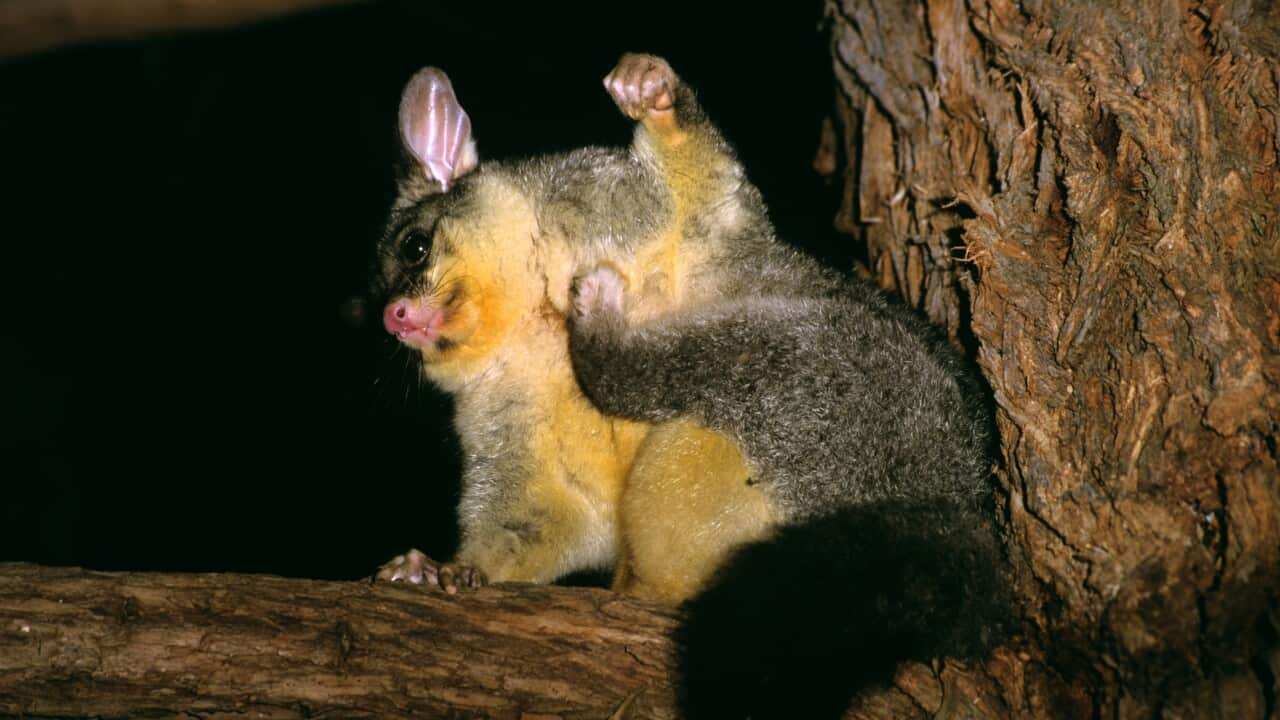If you've ever tried to sleep through the thundering footsteps of a possum on your roof, you'll know just how frustrating these house guests can be. But experts say there are some common misconceptions about these native marsupials — and practical ways to peacefully coexist.
As the weather heats up in spring, so does possum activity, according to urban ecologist Kylie Soanes, a research fellow at the University of Melbourne.
"Almost everything gets busier and noisier during spring," she told SBS News earlier this month.
"I haven't heard the possums on my roof for months and months. I'd completely forgotten they were in the area. And then just last night, at about 8pm, I heard the first pitter-patter along the gutter."
Brushtail and ringtail possums, the two most common species found across suburban Australia, breed year-round but reach peak breeding seasons in autumn and spring.
If you've had a possum living in your roof cavity, chances are it was a brushtail.
This can be a disruptive experience. They sleep during the day and become active after sunset, foraging, climbing and running across rooftops.
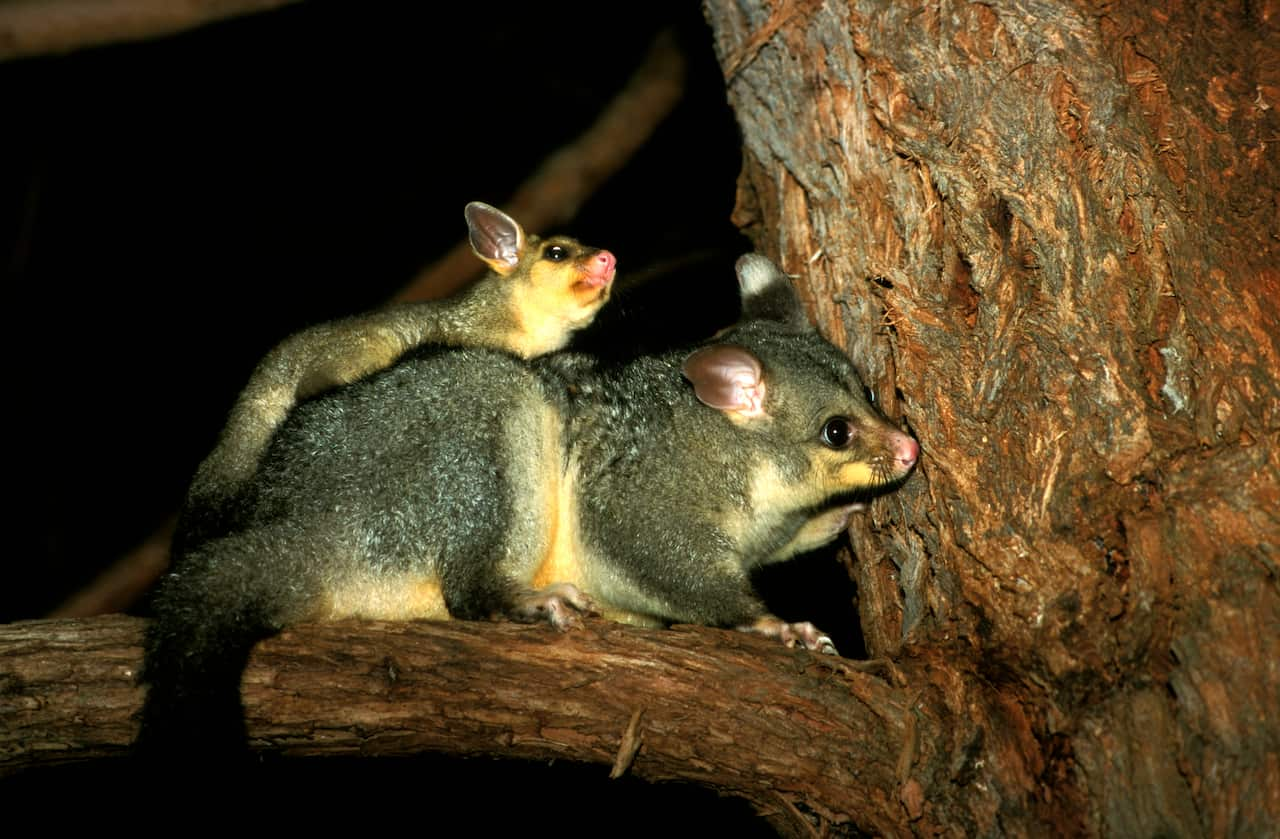
But Soanes reminds Australians that it's a good thing possums have managed to survive and even thrive in cities, where much of their habitat has been cleared.
In an ideal world, a brushtail would set up camp inside a tree hollow — a rare commodity in suburbia.
"We're lucky that they've done well in cities, but we also absolutely have to find ways to live alongside them without them damaging property, stealing your prized nectarines," she said.
Possums often die after relocation to a new area
There are strict laws protecting possums in every state and territory, and removing one without the appropriate licence can attract significant fines.
In most states, it's illegal to relocate a possum more than a short distance from where it's captured.
That means it would generally need to be released back onto or near the same property after it's been moved out of a roof space.
While these animals may seem hardy, they are territorial, and in many cases will not survive when moved further away.
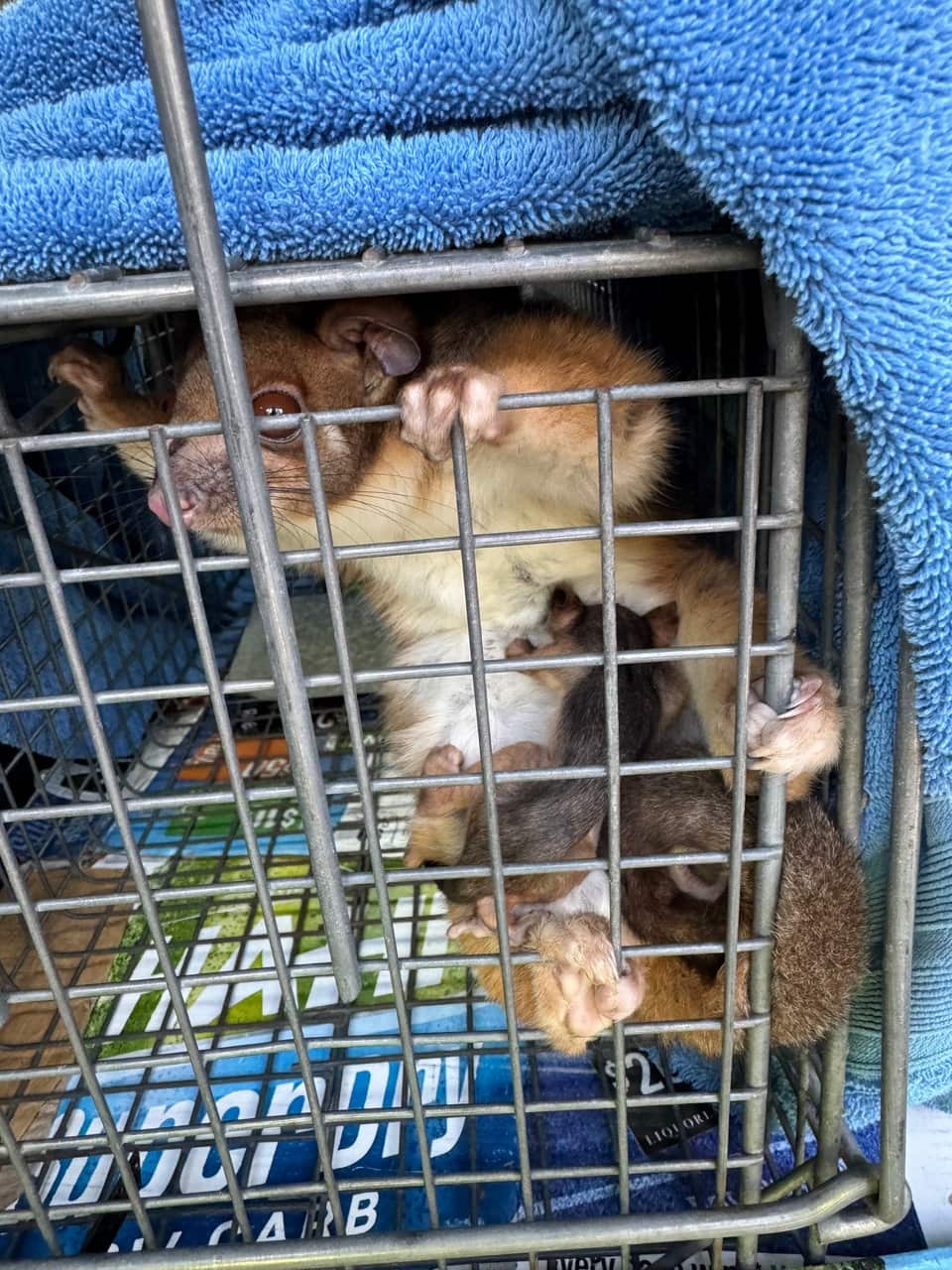
Belinda Head, a possum coordinator with the WIRES wildlife rescue group in Sydney's east, said she routinely encounters people who mistakenly believe they're "doing the right thing" by capturing a possum and moving it to bush or parklands.
"Possums that are relocated out of their territory typically die within days due to stress or attack from other animals that are actually then trying to keep that balance within their territory," she told SBS News.
WIRES has received a growing number of reports about possums in recent years, rising from around 17,200 in 2023 to nearly 20,800 in 2024 and more than 22,800 so far this year.
Wildlife Victoria received more than 19,000 reports of brushtail and ringtail possums needing assistance in the last financial year. The top causes included being trapped, orphaned or injured.
How to get your roof space back — without harming its new resident
Helping a possum move along on its own is by far the best option, Soane said.
She suggested setting up an alternative nesting site, like a nest box, in your yard, which can encourage the possum to move in.
A nest box is a man-made shelter that provides wildlife with a safe place to rest or raise their young.
Typically installed in trees, they mimic natural hollows, which have become increasingly scarce in urban areas due to the removal of trees.
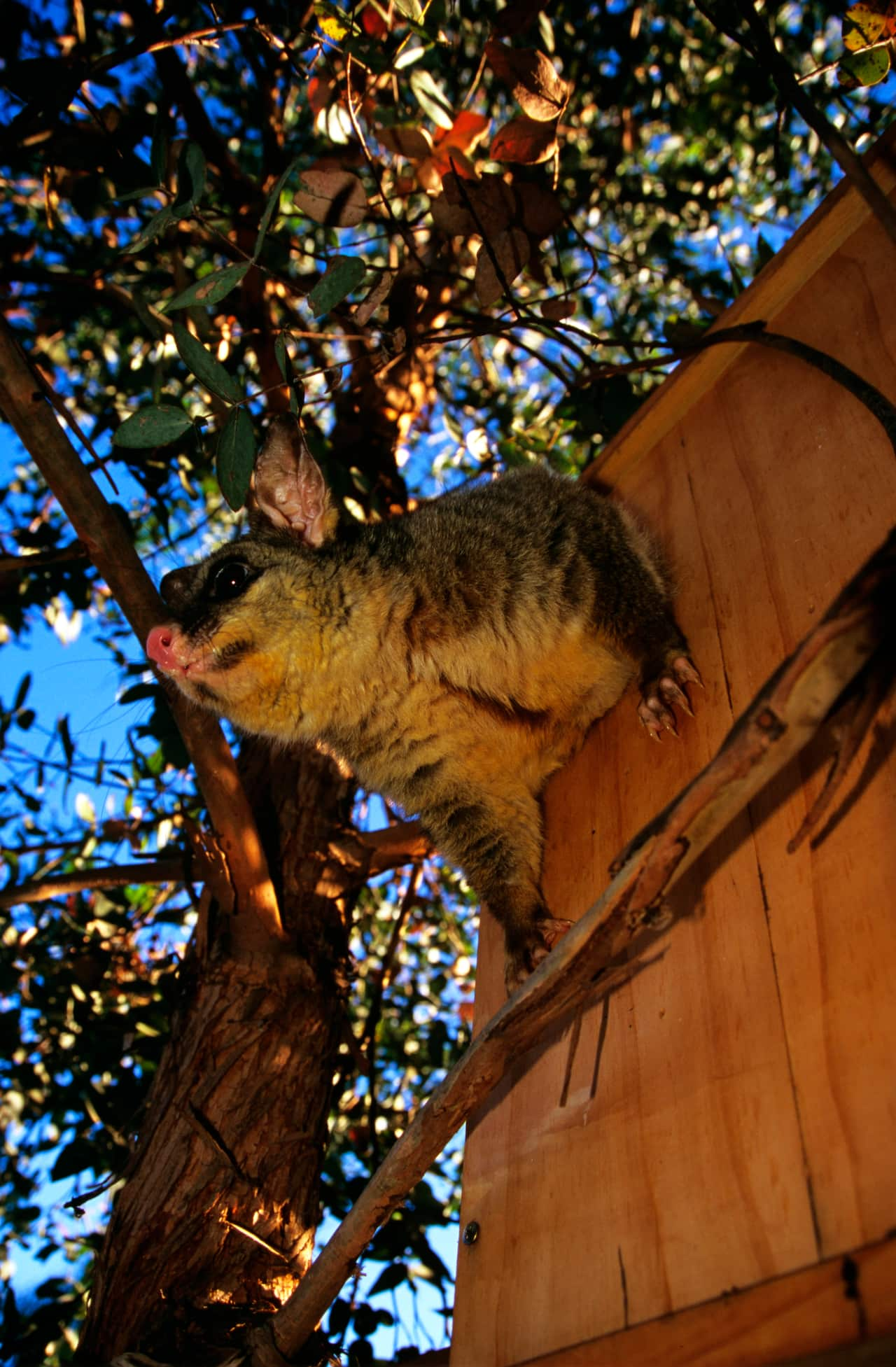
Soane said another option is to wait for the possum to leave your roof space at night and then block the entrance — but it's imperative to be sure you haven't trapped it inside.
If you can't figure out where the possum is getting in and out, you could place scrunched-up newspaper to obstruct any holes in your roof. The following day, if any of the newspapers have been removed, that would suggest that hole is in use.
"If you do that over a few days or a week, just to get a sense of what the different entry points are, then you know how you can make your plan of defence," Soane said.
A humane, licensed possum handler should also be able to safely remove a possum from a building, seal entry points and install an alternative nesting site in your yard.
Failing to block up the entry points could mean this possum, or another one, takes up residence in the future.
How to identify a humane possum removalist
Many "pest removal" services are not licensed to handle native wildlife, Head said, and WIRES often receives call-outs to rescue possums left trapped for days after illegal captures.
Failure to hire an appropriately licensed operator can result in fines.
"The first thing that [people] should be doing is actually asking, 'Are you licensed to trap or relocate native animals?'" she said.
It can also be helpful to check the business' website to see if they have an affiliation with a wildlife organisation.
Calling your local wildlife group and asking if it has any preferred providers is another option.
What about my veggie garden and the nighttime noise?
Possums can also get on people's nerves by munching on plants, including fruit and vegetables, young shoots and flowers.
You may consider setting up physical barriers — such as fine wire mesh or fruit protection bags — to limit access overnight. Make sure any mesh is wildlife-safe, with holes smaller than 5mm, so possums and birds can't become entangled.
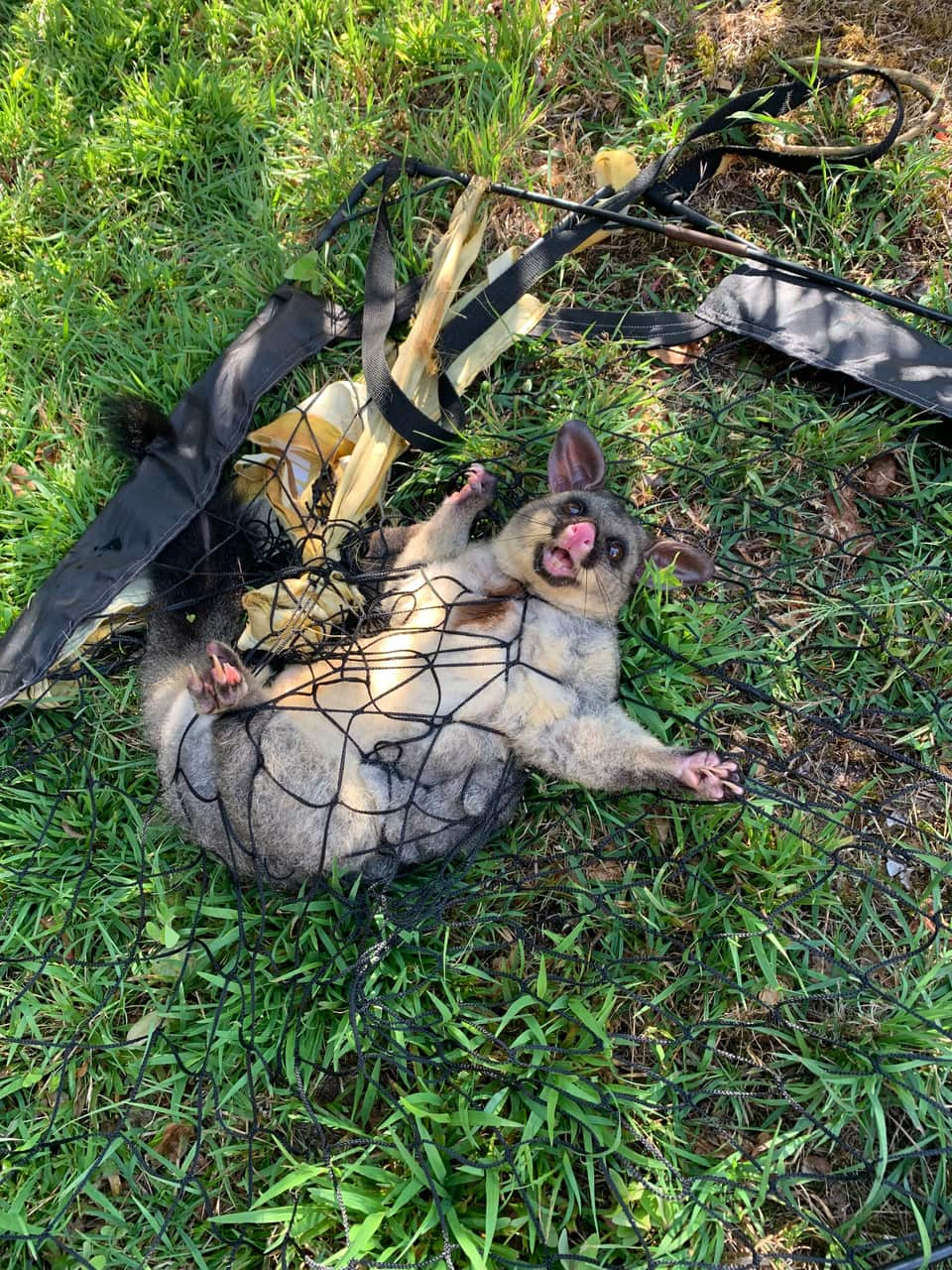
Soane also suggested natural possum repellent sprays such as Poss-Off.
"If you spray that on the leaves of a plant that you think is particularly precious that the possums are going after — maybe it's your roses, maybe it's your nectarines — that will keep the possums at bay," she said.
As for nighttime ruckus on your rooftop, it can help to identify if there is a particular pathway that possums are taking — perhaps a particular branch that hangs over the house that can be clipped.
"Look for those tiny little tweaks that we can do that make it actually less annoying and [a] less inconvenient thing to live with wildlife," Soane said.
Installing wildlife cameras can be a helpful and fun tool to see what your furry neighbours are getting up to, and to ensure possums are actually the culprit.
'They're not pests'
Wildlife experts say it's worth remembering that possums share our space because urban development has pushed them out of their natural habitat.
"These animals are seeking refuge in places where ordinarily they'd be able to find that out in the wild," Head said. "So they're now seeking solutions that work for them, working in the environment that they're in."
Head pointed out that possums are not pests, and are in fact "vital parts of our urban ecosystems".
"They have significant roles in dispersing seeds and controlling insects," she said.
Head said conflicts and rescues often stem from a lack of public awareness about possums, their behaviour, needs, and the rules that protect them.
"So we really need to stop and think about, why is this situation happening, and why is it increasing rather than decreasing?"
For the latest from SBS News, download our app and subscribe to our newsletter.
